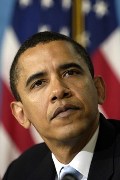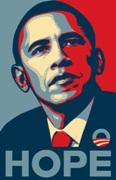Defining the Steroids Era
 On Tuesday, February 24, MLBPA Executive Director Donald Fehr was quoted in the New York Daily News and the Sports Business Daily as saying that “baseball’s steroid problem has been fixed.” I’m not sure how much credibility Mr. Fehr actually has on this issue, but we can at least hope that he is generally correct. The problem remains as to what to do about the corrupting effects of the use of performance enhancing drugs (“PEDs”) from the late 1980’s until the mid-2000’s.
On Tuesday, February 24, MLBPA Executive Director Donald Fehr was quoted in the New York Daily News and the Sports Business Daily as saying that “baseball’s steroid problem has been fixed.” I’m not sure how much credibility Mr. Fehr actually has on this issue, but we can at least hope that he is generally correct. The problem remains as to what to do about the corrupting effects of the use of performance enhancing drugs (“PEDs”) from the late 1980’s until the mid-2000’s.
I don’t believe that any serious observer is recommending that the presence of offending players be somehow expunged from the score sheets of games played in that era. This would be neither possible nor desirable. It is also completely without precedent. Although it has been frequently reported over the years that the midget Eddie Gaedel who played one game for the St. Louis Browns in 1951 was retroactively banned from baseball and his one at bat (a walk) stricken from the baseball records, apparently no such action was taken (although his contract was voided, and he was banned from playing in future games).
There is, however, considerable sentiment for altering the “record book” so that the names of steroid-using players like Bonds, McGwire, Sosa, and Clemens could be expunged from the lists of exceptional performances, or, if not expunged, at least marked with an asterisk. The agencies that run the world of track and field have been doing this for a very long time. New world records have bet set, and then unset, once the presence of steroids was detected.
The problem with this approach — the elimination of records set by players who are known to have used steroids — is that while we know the names of some steroid users, we clearly do not know the names of all players whose performances received a significant boost for PEDs. We probably will never know all of the names. To merely delete the names of known users would end up rewarding those steroid users who were clever enough to avoid detection.
My suggestion is that we bracket off an entire era including the years 1993-2003 and either refuse to recognize or place an asterisk by any record that was compiled in whole or in part during this period. While it appears that steroids and other PEDs had their greatest effect in regard to power hitting, I believe that all records were affected. While this is unfair to record-setting players who are widely believed to have avoided such substances (like Greg Maddux and Ken Griffey, Jr.), they are the unfortunate victims of the illegal behavior of their contemporaries. By record setting, I mean performances that place players among the all-time leaders in standard categories.
Such an approach is not entirely without precedent. I was born in 1952 and throughout my youth and early adulthood, it was widely accepted, though perhaps not officially sanctioned, that the only legitimate major league records were those that had been set in the twentieth century. Consequently, the record for most wins in a season was Jack Chesbro’s 41, compiled in 1904, not Hoss Radbourne’s 60 (or 59) from 1884, or even Bill Hutchison’s 44 in 1891. Similarly, the record for the highest single season batting average was Rogers Hornsby’s .424 from 1925, not Hugh Duffy’s .438 (or .439) from 1894.
Career records did not seem disabled in quite the same way. Cy Young’s 510 wins was recognized as the career record, as was Sam Thompson’s record of 309 career triples, even though both men had played a portion of their careers before 1900. (Thompson played only a single season before 1900, but Young played ten during which he won 267 games.) It was also never clear to me if for these purposes the twentieth century began in 1900 or 1901. It made sense that 1901 would be the first “legitimate” year since everyone at the time thought that the twentieth century began on January 1, 1901, plus 1901 was the year that the American League proclaimed itself a major league and established the two major league set-up that continues to the present. However, because no record was set in 1900, the issue was moot.
Under my proposal, Barry Bonds would still be recognized as having hit 73 home runs in 2001 and 762 home runs in his career, but the single season record for home runs would be Roger Maris’s 61 in 1961. (The 60+ home run years of McGwire and Sosa would also be eliminated because they occurred between 1993 and 2003.) The career home run record would revert to Hank Aaron’s 755, as I would extend the bracketing to career records as well.
Obviously, there is a difference between bracketing off 1889-1899 (or 1876-1899, depending on when one starts the history of major league baseball) and doing the same to 1993-2003 since there was no major league baseball before the nineteenth century. But the 93-03 period is properly thought of as the lost years of major league baseball. I know that I try to think about that period as little as possible.



 (This is the fourth in a series of posts on Fairey v. Associated Press. See below for other posts in the series.)
(This is the fourth in a series of posts on Fairey v. Associated Press. See below for other posts in the series.)